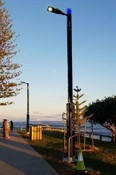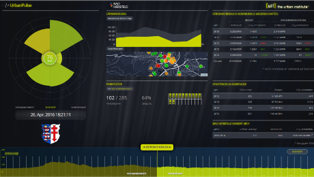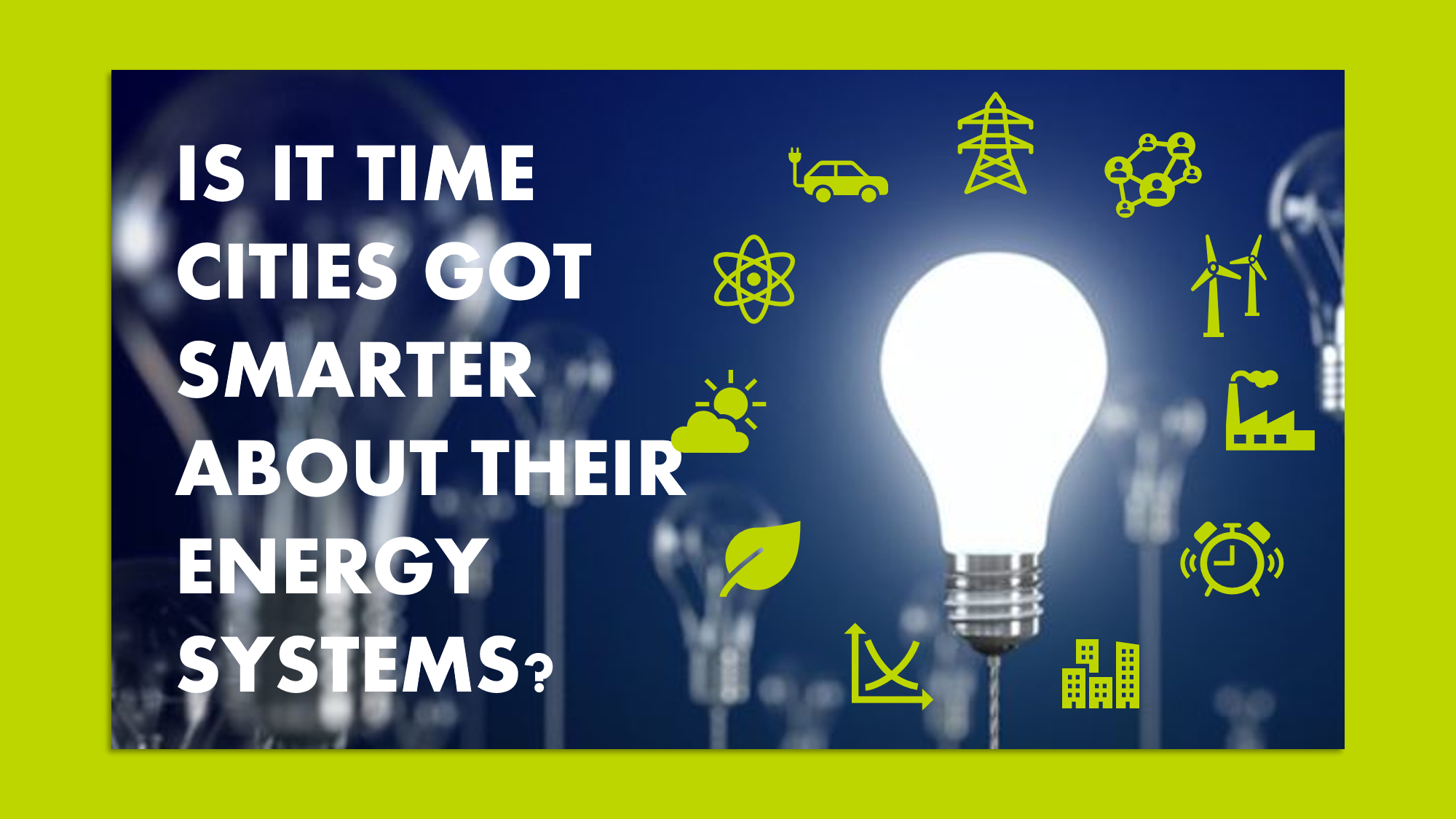The city energy system didn’t used to feature in policy and service priorities. However, like resident, business and visitor access to the internet, cities now face unprecedented shifts and increased demand for energy and sustainable energy. So how are leading cities are tackling this ‘new’ issue? In this blog we look at how five cities are addressing smart energy requirements.
Why do cities need to think about energy?
By 2025, about 58% of the world population will live in urban areas, with this rate reaching 80% in developed countries. With this shift to city regions, cities will need to address increasing overpopulation, climate change, environment and access to energy issues. Major city regions consume around 65% of available primary energy and count for nearly 70% of greenhouse gas emissions, mainly to supply energy for lighting, heating, cooling and transport. Local Authorities also are a customer in the energy and green house gas supply chain as they can be the largest local employer, a provider of municipal facilities, social housing and fleets. At the same time as an increase of energy demand, residents, businesses, visitors and local authorities themselves are consciously changing what they consume and how they manage impacts. So not only do cities need to think about energy, they will want to leverage their community representation power to ensure a new type of energy market.
What are the main smart energy use cases for cities?
- ensuring sustainable supply
- understanding future need levels
- ensuring infrastructure capacity and capability
- inform strategic planning for a net zero carbon energy system, informing development (and location) of projects which enable the transition to a low carbon local energy system
- intelligent load management for the control of local production and consumption in real-time:
- using flexibilities by controlling of devices needed to influence the energy state
- load distribution between different power stations (electricity, heat, gas ...)
- open up new market segments
- creates transparency between production and consumption
- holistic view of businesses and households:
- to understand opportunity for load flexibility
- easy access to everyday energy production and consumption to identify “power guzzlers”
- saving energy becomes easy and more comfortable
- providing district heat and energy systems
- smart property management:
- handling all energy values, alarm management, ticketing, documentation and functions of facility management
- instrument for handling all energy values
- alarm management / ticketing / documents
- functions of facility management
What are cities doing to get smarter about energy?
Cologne - smart school / energy education
In order to engage st![[ui!] COCKPIT for Cologne smart energy school](/images/Colonge_smart_school.png) udents in the issue of climate change, [ui!] and RheinEnergie have equipped classrooms with smart metering systems and started a contest where students compete for the lowest energy consumption in their classroom. The mascot is a polar bear on a melting ice cap. The project is part of the city wide initiative SmartCity Cologne.
udents in the issue of climate change, [ui!] and RheinEnergie have equipped classrooms with smart metering systems and started a contest where students compete for the lowest energy consumption in their classroom. The mascot is a polar bear on a melting ice cap. The project is part of the city wide initiative SmartCity Cologne.
Innsbruck Project SINFONIA – load levelling at the District level![[ui!] COCKPIT District energy load levelling](/images/Innsbruck_SINFONIA.png)
To respond to the evolving spread of distributed renewable energy sources, the solution also minimises and balances the energy supply with demand by optimising potentials for decentralised energy. Marketable energy services based on [ui!] UrbanPulse are designed to demonstrate how the district demand, specifically for energy intensive enterprises, can be used for load levelling on district level.
Caloundra (Australia) - energy efficient street lighting
 At the coast of Caloundra in Australia a parking space has been equipped with integrated multifunctional street lighting which contains parking sensors, that detect free parking spaces and display them in their app solution. The lamppost also includes environmental sensors and charging for electric vehicles. All data from the post is aggregated via [ui!] UrbanPulse.
At the coast of Caloundra in Australia a parking space has been equipped with integrated multifunctional street lighting which contains parking sensors, that detect free parking spaces and display them in their app solution. The lamppost also includes environmental sensors and charging for electric vehicles. All data from the post is aggregated via [ui!] UrbanPulse.
Bad Hersfeld (Germany) – bench marked Municipal estate energy data
Consumption data of heating, water and electricity in municipal buildings is collected by [ui!]. The data is analysed against benchmarks for the municipal sites. The real-time data is processed via [ui!] UrbanPulse and visualised with [ui!] COCKPIT.
Chemnitz (Germany) – energy efficient local housing
![[ui!] UrbanPulse smart home sensor and device management](/images/Chemnitz_energy_efficient_local_housing.jpg) As part of a complete retrofit, the apartments in the "Rosenbergstrasse" building complex near the university in Chemnitz were equipped with sensors and modern technology including light, motion, CO2 and smoke detectors, radiator thermostats (and control App), window drivers (also control App) and burglar-resistant smart door locks. All data is shared with the tenants in order to help them manage energy levels and consumption.
As part of a complete retrofit, the apartments in the "Rosenbergstrasse" building complex near the university in Chemnitz were equipped with sensors and modern technology including light, motion, CO2 and smoke detectors, radiator thermostats (and control App), window drivers (also control App) and burglar-resistant smart door locks. All data is shared with the tenants in order to help them manage energy levels and consumption.
[ui!] energy building blocks
- [ui!] ENERGY is the backbone of intelligent, energy-conscious sustainable cities
- within an urban infrastructure, a wide range of information sources can be brought together to provide and develop new innovative services for the residents, businesses, visitors and local municipal administration
- useful data is collected from the energy-management of a city to process and pass them on to selected third parties – as information for services that create added value for the residents of a city
- all data used are anonymous and serve to improve the quality of life, reduce energy requirements and improve the environment, for instance air quality
- [ui!] ENERGY is provided through our data platform [ui!] UrbanPulse, the open smart city platform for local authorities
- bringing your raw data together into one place
- transforming your data into smart data
- creating actionable insights and valuable information
- breaking through vendor lock-in and data siloes
If you would like to find out more about the projects above or how [ui!] ENERGY could help your city achieve its smart energy aims contact me, This email address is being protected from spambots. You need JavaScript enabled to view it.

![[ui!] COCKPIT for Cologne smart energy school](/images/Colonge_smart_school.png) udents in the issue of climate change, [ui!] and RheinEnergie have equipped classrooms with smart metering systems and started a contest where students compete for the lowest energy consumption in their classroom. The mascot is a polar bear on a melting ice cap. The project is part of the city wide initiative SmartCity Cologne.
udents in the issue of climate change, [ui!] and RheinEnergie have equipped classrooms with smart metering systems and started a contest where students compete for the lowest energy consumption in their classroom. The mascot is a polar bear on a melting ice cap. The project is part of the city wide initiative SmartCity Cologne.![[ui!] COCKPIT District energy load levelling](/images/Innsbruck_SINFONIA.png)
 At the coast of Caloundra in Australia a parking space has been equipped with integrated multifunctional street lighting which contains parking sensors, that detect free parking spaces and display them in their app solution. The lamppost also includes environmental sensors and charging for electric vehicles. All data from the post is aggregated via [ui!] UrbanPulse.
At the coast of Caloundra in Australia a parking space has been equipped with integrated multifunctional street lighting which contains parking sensors, that detect free parking spaces and display them in their app solution. The lamppost also includes environmental sensors and charging for electric vehicles. All data from the post is aggregated via [ui!] UrbanPulse.
![[ui!] UrbanPulse smart home sensor and device management](/images/Chemnitz_energy_efficient_local_housing.jpg) As part of a complete retrofit, the apartments in the "Rosenbergstrasse" building complex near the university in Chemnitz were equipped with sensors and modern technology including light, motion, CO2 and smoke detectors, radiator thermostats (and control App), window drivers (also control App) and burglar-resistant smart door locks. All data is shared with the tenants in order to help them manage energy levels and consumption.
As part of a complete retrofit, the apartments in the "Rosenbergstrasse" building complex near the university in Chemnitz were equipped with sensors and modern technology including light, motion, CO2 and smoke detectors, radiator thermostats (and control App), window drivers (also control App) and burglar-resistant smart door locks. All data is shared with the tenants in order to help them manage energy levels and consumption.